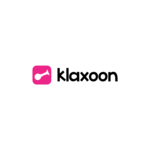Results from more than 2,500 workers in Europe and U.S provide insight into how employees experience meetings
BOSTON–(BUSINESS WIRE)–#TheMeetingRevolution–After more than a year of pandemic gathering restrictions, the world’s workers have spoken out in a survey by Klaxoon, with respondents reporting a host of vexing problems. Participants reported that today’s meetings often stifle creativity (56%) and inclusion (44%), respondents also reported they only felt comfortable sharing opinions that differ from the leader or the group consensus slightly more than half of the time (56%).
The survey provides insight into how employees view their experience with meetings at work. A total of 2,585 people were surveyed from the U.S., U.K., France, and Germany. Respondents were full-time employees who hold an office position and have more than three meetings per week. The survey was conducted in partnership with Dr. Steven Rogelberg, one of the foremost experts on meetings, recipient of the Humboldt Award for his research, and author of “The Surprising Science of Meetings.”
“With the unprecedented use of virtual meetings since the start of the pandemic and the likelihood of increased hybrid meetings as the world finds a new normal, the survey suggests we must work much at improving interaction and efficiency – meeting derailers have not yet been solved,” said Rogelberg, Chancellor’s professor, University of North Carolina at Charlotte. “Enabling all attendees to be more active participants — regardless of geographic location — will be critical. Maybe it’s time to rethink the design of meetings with a focus to build for inclusion, creativity, maximum positive impact and draw inspiration from the most engaging formats we know, like workshops.”
Key findings of the report include the following:
-
56% of respondents said their organization instituted a meeting-free period, such as no meetings on Fridays. Only 37% of respondents indicated this policy was effective. Some of the top reasons that the policy is ineffective include:
- Others broke the rules and scheduled meetings during the meeting-free period;
- People outside of the organization (partners, clients, etc.) were not aware of the policy and scheduled meetings during the meeting-free time;
- It was necessary to meet, and could not wait until after the meeting-free period;
- Employees did not realize any additional productivity during the meeting-free period.
- 61% of respondents mentioned that one-on-one meetings with their managers are useful and well-run while 42% said the meetings were stressful.
- In meetings that were online or partially online, 52% of respondents indicated the meeting outcomes are better if all attendees have their video camera on while only 10% indicated that outcomes are worse. In meetings with virtual components, 57% of respondents indicated that attendees are more engaged if all attendees have their video camera on; only 8% reported that attendees are less engaged when attendees have their cameras on.
- According to the respondents, meetings are run in a way that encourages creativity just 44% of the time on average, reflecting that 56% of the time creativity was stifled.
- Respondents’ meetings were run in a way that promotes inclusion 56% of the time, on average — meaning 44% of the time respondents felt inclusion was lacking.
- Respondents felt comfortable sharing opinions that differ from the leader or the group consensus 56% of the time, on average meaning in 44% of cases, respondents were reticent to express any sort of dissent.
“The pandemic redefined work in many ways and forced all of us to adapt to different ways of collaborating,” said Matthieu Beucher, CEO and founder of Klaxoon. “We’ve all sat for hours in front of our computers in back-to-back meetings. This survey tells us collaborative tools need to adapt to the new reality of work so that teams can be productive and efficient no matter where (or in what timezone and timeline) they are. With more than 10 million workshops hosted on our platform in the past 18 months, we’ve witnessed teams gain vast efficiencies transitioning meetings into more collaborative workshops.”
The full report is available here.
About Klaxoon
Klaxoon is the hybrid workshop collaboration tool adopted by millions of teams worldwide, with offices in the U.S., France and Singapore. Klaxoon is a complete workshop platform, enabling teams to do efficient and collaborative workshops. Founded by Matthieu Beucher, Klaxoon was launched in March 2015 and now employs 300 people. Klaxoon is currently used by millions of teams in more than 120 countries and more than 10,000 organizations, of all types and sizes. Klaxoon has won numerous international awards. For more information, visit https://klaxoon.com.
About Dr. Steven Rogelberg
Dr. Steven G. Rogelberg, an organizational psychologist, holds the title of Chancellor’s Professor at UNC Charlotte for distinguished national, international and interdisciplinary contributions. He is an award-winning teacher and recipient of the very prestigious Humboldt Award for his research on meeting. His latest book, “The Surprising Science of Meetings: How You Can Lead Your Team to Peak Performance” (Oxford) was recognized by the Washington Post as the “#1 Leadership Book to Watch for.”
Contacts
Eckert Communications
Joseph Eckert – jeckert@eckertcomms.com


